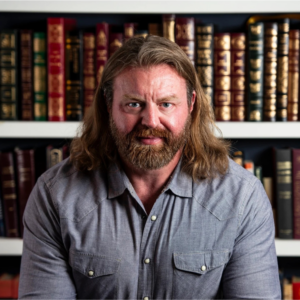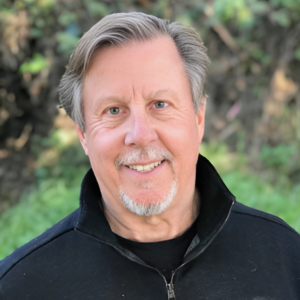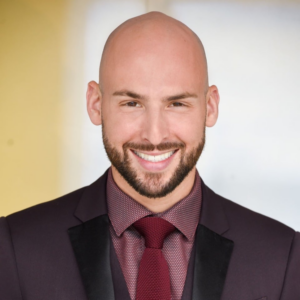Disclaimer: Ibogaine is a potentially illegal substance, and we do not encourage or condone the use of this substance where it is against the law. However, we accept that illegal drug use occurs, and believe that offering responsible harm reduction information is imperative to keeping people safe. For that reason, this guide is designed to ensure the safety of those who decide to use the substance. We do not encourage using this drug outside of a legal, traditional or medical context.
Ibogaine is a psychoactive compound found in several different plants, most commonly the Tabernathe iboga found in parts of Africa. It has been used traditionally by people in certain regions of West Africa for thousands of years, where it is used for its medicinal and psychoactive properties.
In the modern world, ibogaine is becoming popular as an effective treatment of addiction and withdrawal symptoms. It has been used to help people addicted to substances such as opioids, cocaine, amphetamines and alcohol.
This is how one heroin addict described his treatment with ibogaine:
“As it starts to take effect I feel an intense wave of energy emanating from the centre of my chest that permeates my entire body. This euphoric state also brings me instantaneous relief from the discomfort I was feeling after going without heroin for almost 24 hours.
With my withdrawal symptoms completely gone, I am perplexed by the state of clarity I am in while seeing the most profound stream of visual phenomena. I am also filled with a sense of awe at the potential for a life free of heroin. Emotional memories force me to deal with some of the deep subconscious guilt I have repressed for years.
This powerful state persisted for over 12 hours. After remaining at the clinic for a week I was allowed to return home and over the next six months felt almost no cravings whatsoever.”
In this guide, we’ll explain everything you need to know about ibogaine treatment. We’ll tell you how it works, what a typical treatment course looks like, and how to choose the best treatment center.
HOW IBOGAINE WORKS
Although there haven’t been any large studies of ibogaine’s efficacy, it seems from anecdotal reports as if ibogaine is a very effective form of treatment for addiction and withdrawal symptoms. Supporting the anecdotes, one study from 2000 showed that when a single dose (500-800mg) of ibogaine were administered to 27 cocaine- and opioid-addicts, it resulted in a significant decrease of cravings and depressed symptoms. Two recent studies show that most addicts find significant reductions in withdrawal symptoms after a single ibogaine treatment, and have reduced cravings for many months afterwards.
Despite its potential, we still aren’t entirely sure how ibogaine works. We know that it mainly activates two types of receptors in the brain; sigma receptors and 5-HT2A receptors.
Sigma receptors are opioid receptors, activated by addictive drugs like heroin. It’s possible that ibogaine helps to lessen withdrawal symptoms by weakly activating these receptors, like someone quitting smoking by putting on a nicotine patch.
5-HT2A receptors are the main receptors activated by many other psychedelics, especially LSD, psilocybinand ayahuasca. It’s these receptors that are probably responsible for the psychedelic aspects of the ibogaine experience. Just like how ayahuasca, psilocybin and LSD have been shown to have antidepressant properties, it’s likely that ibogaine is working in a similar way. By disrupting the Default Mode Network in the brain, classic psychedelics allow users to break free of typical restrained thought patterns and gain a new perspective on their lives.
Users of ibogaine often describe the experience as giving them an outside view of their lives, allowing them to clearly see the harmful aspects of their addiction. This fresh perspective allows people to explore ways they can change their lives for the better.
Here are some user reports we’ve collected that highlight the potential healing properties of ibogaine:
“Around half an hour after, the Iboga spirit […] appeared to me as a black man, an African warrior type being, and told me that he was here to help me. I began immediately thinking about my father, as I have much childhood trauma associated with him. Iboga clapped his hands, and my dad appeared. My father looked drunk, and had an aggressive, angry expression on his face, with his fists in the air like he was about to beat me. Suddenly, Iboga clapped his hands again, and instantly my father transformed into a scared little boy, perhaps around age eleven, crying about being beaten by his grandfather (his primary caregiver during his childhood). This vision humbled me to a level I’d never felt before; the massive resentment I held towards my dad was uprooted out of me by Iboga.
Next, came my mother. Iboga did something very different this time: he transformed me into my mother, and all of a sudden I felt all the pain and suffering that I had caused her during my addiction through lying, stealing, manipulating. This vision humbled me to a level I never felt before, and after the experience, I cannot bring myself to lie to her without bawling my eyes out, precisely because I was her and I felt all the pain I had caused her. Iboga allowed me to forgive myself for the pain I caused the woman who loved me more than anyone else in the world, but he emphasised that I must never again cause her that type of pain.”
“I saw the most intense closed eye visuals ever. It is like closing your eyes and there is a movie playing. Seriously, it was that vivid. I remember my hallucinations. I don’t know if it was because of the African music playing, but I saw serious looking shamans in my close eye visuals staring at me. I also saw a jaguar just staring into my eyes. The most fucked up part of my trip was when I saw my mom crying. When I would use drugs, my mom would cry sometimes but when I was high I did not give a shit. When I saw my mom crying in my visuals, I felt so shitty and felt like I owe her for her happiness that was lost.
I laid there in bed and I had deep locked thoughts from my childhood, flashbacks of all the negative experiences I had, and realized exactly why I used drugs to begin with. I did also see open eye visuals. There was one moment where I saw a pair of non-human eyes floating above, then all of a sudden a long tongue dropped to my bed where the eyes were, this hallucination was very shocking. It was like the same shock experienced when you hear a loud and unexpected sound. Ibogaine had a lot of those moments. Ibogaine is like a stern teacher or parent teaching you a lesson, it is not fun and games. Towards the end, I felt very peaceful.”
“I was at peace with everything. I had accepted my fate and I had died trying to save myself from a lifetime of misery as well as everyone around me […] The ibogaine was working a miracle and saving my life. It totally cleansed my body from every toxin I had put in it for 20 years. It defragmented my brain and allowed me to reboot. I was laying there a dead man and all of a sudden the power came back on.”
WHAT DOES AN IBOGAINE TREATMENT COURSE LOOK LIKE?
Owing to the success of ibogaine in treating withdrawal and addiction, hundreds of ibogaine treatment centers have started appearing all over the world. Their aim is to provide a safe and comfortable environment in which sufferers of addiction can take ibogaine to make a meaningful difference in their lives. Many treatment centers offer support and guidance to help you effectively prepare for and integrate their experience.
The exact contents of an ibogaine treatment course will vary depending on the center, but they are all focussed around the ibogaine experience. As such, you will be assessed for fitness, especially any heart conditions or family history of heart conditions, as ibogaine has been linked to fatalities related to prior heart conditions. The entire treatment protocol may last several days, involving an initial screening, the administration of ibogaine itself, and time after the experience to integrate and reflect.
The best ibogaine treatment centers adhere to the Global Ibogaine Therapy Alliance’s Clinical Guidelines, or some other form of medical guidance. It’s best to check what guidelines any potential treatment center follows, as your safety should be a priority.
HEART RISKS
It’s important to know that ibogaine is also one of the world’s most dangerous psychedelics.
Relatively small doses are known to cause a temporary change in the way the heart operates. Although normally this isn’t a big problem, it can be fatal under certain circumstances.
Mixing ibogaine with other medications, or taking ibogaine with a prior heart condition, is associated with a huge risk of cardiac arrest.
Additionally, even people who’ve been screened for these risk factors have been known to suddenly diefrom a dose of ibogaine. Even with the best medical support and screening, it’s possible for ibogaine to be fatal.
A worst-case estimate places the risk of fatality from ibogaine treatment at around 1 in 400. This risk is much higher than most extreme sports (although lower than base jumping). So before diving right into ibogaine treatment, consider this risk. Would you jump out of a plane to treat your addiction?
You should always be screened for health conditions that could be risk factors with ibogaine treatment, and any current addiction profile should be carefully considered by a medical professional. Ideally you will be subject to a number of tests of cardiac health, including an ECG and blood tests.
The medical professionals at the treatment center must be aware of the risks of combining other drugs with ibogaine, including opiates and alcohol. If you are undergoing acute withdrawal from a substance, there are lots of factors the lead medical professional should be aware of, including the risk of accidental overdose if you are on a stable opioid regimen. These Clinical Guidelines detail all the drug interactions your therapists should be aware of.
You should always be given a degree of psychological preparation before the experience, ideally setting up your goals and expectations. You will also have to give your informed consent – make sure you are fully aware of the risks and treatment method.
During the ibogaine treatment itself, you should be comfortable and relaxed. A therapist or guide should be present at all times but should not disrupt the peace and quiet – it’s generally considered that ibogaine treatment is most effective when you are allowed to reflect inwardly for the entire experience.
Eye masks, earplugs and the option of music should be offered to you. The surroundings should be minimalist and relaxing, such as soft light and comfortable bedding. Music should be non-verbal and preferably ambient.
Ideally, staff should be trained in basic first aid, and the treatment center should be within 15 minutes’ drive of a medical center or hospital. As a precautionary measure, a heart monitor should be attached to you during the session. You should be monitored by the center staff for at least 72 hours following your dose – this includes occasional tests of blood pressure and heart rate.
“You should always be screened for health conditions that could be risk factors with ibogaine treatment.”
You should be given some time after the experience (perhaps a few days) to relax and reflect on your experience. Some brief sessions with a therapist may be helpful in allowing you to fully integrate the experience. You should be given regular follow-up calls for several weeks following the session.
You should be directed towards other forms of support or therapy that will help you continue your journey towards an addiction-free life, or continue your personal development in the most effective way possible.
Overall, your experience at an ibogaine treatment center should be safe, comfortable, and guided. You should feel well supported by a team of well-trained people who are first and foremost concerned with your safety. If performed correctly, your ibogaine treatment will have a dramatic positive influence on your life.
Curious about supporting your mental health through psychedelics? Check out Third Wave’s vetted directory of psychedelic therapists.
HOW TO CHOOSE THE BEST TREATMENT CENTER
There are hundreds of ibogaine treatment centers worldwide, so picking the right one for you might take some time. Overall, we recommend you research your desired treatment center thoroughly, reading testimonials and reviews and making sure they know what they’re talking about. As we’ve mentioned above, ideally your treatment center would be familiar with some clinical guidelines for ibogaine treatment, such as those published by the Global Ibogaine Therapy Alliance.
You should be totally confident that an ibogaine treatment center is professional, employs well-trained staff and will make your safety and recovery an absolute priority.
You should be thorough when choosing an ibogaine treatment center. Several treatment centers have negative reviews or claims of mistreatment, so it’s important to check for these. What might seem like a professional establishment on the surface could turn out to be a family-run ‘business’ without proper medical oversight. From the research we’ve done, there are certainly more treatment centers to avoid than to be enthusiastic about.
Ibogaine is a relatively new treatment to the Western world, and as such its practice is not ideal. Hopefully, as this treatment becomes more well established, we’ll see more reputable treatment centers that adhere to standard clinical guidelines and make the patient a priority.
For a complete list of trusted iboga retreat centers worldwide, visit Third Wave’s Psychedelic Directory.
OTHER OPTIONS
If you don’t like the look of any ibogaine treatment centers near you, you have the option of self-treatment. Owing to the associated heart risks of ibogaine, we do not recommend this practice. A full medical screening prior to, and constant medical observation during an ibogaine treatment are essential. If you manage to obtain ibogaine on your own, you should absolutely ensure that all medical risks are controlled for and that you have some form of support available to you.
Otherwise, in many countries ibogaine is available through prescription as a treatment for addiction. Talk to your doctor to see if this option is possible for you.
THE FUTURE OF IBOGAINE
It’s still early days, and ibogaine has certainly had a rocky journey so far. But this unique psychedelic may turn out to be an effective natural treatment of addiction, the likes of which we have never seen before. If we continue to be aware of the risks, and stick to clinical guidelines, ibogaine could become part of the modern repertoire of addiction treatment.
Important Note: This is a constantly-evolving document. If you believe we’re missing something important, please let us know via the contact page.








I need to know the right information on how to follow up treatment after a Ibogaine clinic treatment in mexico my daughter is going to be in the next 15 days? Is it any help here in
south Florida Fort Myers?
Hello,
this article is a really really good and iboga is a very useful plant for addiction people medicine. thanks for sharing this article.
Hi, i’m inquiring about your Ibogaine therapy services in Canada. I have an individual who’s a heroin addict and currently in a methadone treatment center in Canada. I would like all the information you can give me regarding:
Pricing?
Length of treatments?
Number of treatments involved?
Does the patient need to be off of methadone for a certain period of time if at all?
What criteria make for a candidate of your services?
Is there a waiting list?
Is there priority for cash paying patients?
Pretty much every bit of information you can give me is greatly appreciated.
Thanks
Hi, where can I get info on treatment centers, cost …everything needed to have this done. Live in Maryland….willing to travel in US or outside
I really want off suboxone. Is Ibogaine treatment something I could really do either at home it at a treatment facility? I live in Tennessee, and Money could be an issue. Can i get Ibogaine somehow? I really want off suboxone and back to myself before addiction to opioids. I’ve been on suboxone for about 7-8 years. Thank you for your help.